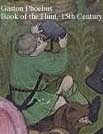 Glossary
of terms used in this survey
Glossary
of terms used in this survey Glossary
of terms used in this survey
Glossary
of terms used in this survey
Autocrat: A title given to the person in charge of an event.
Cook: the person in charge of planning the feast, and supervising its execution, usually assisted by a variety of skilled volunteers, or willing unskilled volunteers.
Course: a group of dishes set down in a group. This is the term that is currently believed to be more accurate than "remove" which is a much later (Victorian) term.
Dayboard: lunch, or snacks, during the day. Sometimes included in the event fee, sometimes with a separate charge.
Documented Sources: Books, letters, cookbooks, and other informational sources that were written or discovered during within the organization's timeframe. (In the case of the SCA, prior to, or around 1600 AD)
Event: A get-together of members of a living history organization in an environment designed to recreate aspects of the time period.
Feast or 'the feast': A large meal served at an SCA event, usually in the evening. Reservations are often required, and feasts cost from $5 to $20 for one person, usually separate from the site fee. Note that some regions will say "Are you eating feast?" and others will say "Are you eating the feast?"
Feast Hall: The place/dining hall where the meals or Feasts are served.
Feast-o-crat: See "Cook." Designates the Chef or Cook.
Garb: Clothing or costumes worn by event attendees.
HACCP: The initials stand for the Hazard Analysis and Critical Control Points system. This system was developed in 1996 and is preferred by food safety professionals around the world and is widely viewed as critical to food safety because it helps prevent food contamination by identifying potentially unsafe links in the food processing chain. We want to avoid the discomforts of the medieval world!
Hall Steward: The person responsible for setting up the dining hall.
Living History: also Re-Enactment, Re-Creation. There are various divisions and conflicting descriptions of these terms, but in general: Any organization that attempts to re-create a period of history through various means i.e. the Arts and Sciences, combat, role playing, cooking etc.
On-board: eating the feast
Off-board: not eating the feast (might be going to a restaurant,
or bringing one's own meal), but might be allowed space in the feast hall.
Out-board: not eating the feast, and no space at all is reserved
in the feast hall.
Period: Those things that have been proven to have existed within the timeframe of the living history organization.
Primitive Site: An event location where there are limited facilities, such as an outside campground. You may not have even running water.
Redacted source: a pre-modern recipe which has been translated or interpreted for modern convenience, methods, or available foods. The most useful cookbook redactions provide the orginal for comparison with the redactor's version.
Redacting: The art (and it is an art) of taking recipes written in period or pre-period documented sources and translating them into a modern format with few changes or corrections. Note: Many people use the following words interchangeably: redacting, adapting, reworking, interpreting.
Recipe Adaptation: (1) After redacting a recipe many cooks will then alter the redaction into a variation of the original recipe. (2) To take a modern recipe and alter it so that it contains “period or acceptable” ingredients.
Remove: see Course.
| <-- Disclaimer & Artwork (Previous section) | Links to Medieval Food sites (Next section) --> |
| Back to the Feast Survey main page | All text © 2000 Raine Phillips |